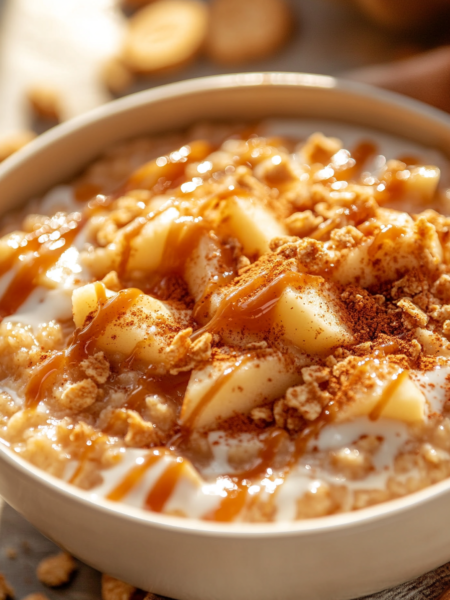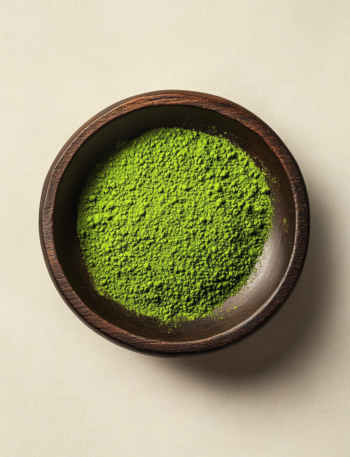Introduction to Oats and Their Nutritional Profile
Oats, scientifically known as Avena sativa, have been utilized as a staple food for thousands of years, with archaeological evidence suggesting their cultivation dates back to at least 2000 B.C. Initially regarded for their value as animal feed, they gradually gained popularity among humans, largely due to their remarkable health benefits and versatile culinary uses. Today, oats are consumed globally, particularly in countries such as Scotland, the United States, and Canada, where they feature prominently in breakfast foods like oatmeal and granola.
The nutritional profile of oats is nothing short of impressive. They are primarily composed of carbohydrates, predominantly in the form of complex carbohydrates, which provide sustained energy throughout the day. Oats are also an excellent source of dietary fiber, specifically beta-glucan, which is known for its cholesterol-lowering properties and positive influence on gut health. A typical serving of oats contains about 13 grams of protein, making them a substantial source of essential amino acids, and they are relatively low in fat, contributing to their overall healthful characteristics.
Moreover, oats are rich in a variety of vitamins and minerals. They are particularly high in manganese, phosphorus, magnesium, and iron, alongside several B vitamins like thiamine and folate. This nutrient density contributes to their status as a functional food that supports overall health. For those seeking heart health benefits, managing weight, or enhancing digestive health, oats offer a myriad of advantages. As such, incorporating oats into one’s diet can serve as an effective strategy for improving health and well-being, setting the stage for deeper exploration of their numerous health benefits in the sections that follow.
Rich in Nutrients: A Closer Look
Oats are renowned for their dense nutritional profile, making them a highly beneficial addition to a balanced diet. These whole grains are exceptionally rich in dietary fiber, particularly beta-glucan, which plays a crucial role in promoting digestive health and regulating cholesterol levels. Fiber helps to provide a feeling of fullness, which can aid in weight management by curbing overeating.
In terms of protein, oats offer a significant amount, especially when compared to other grains. A typical serving of oats can provide approximately 6-7 grams of protein, which is essential for tissue repair, muscle growth, and overall bodily function. The protein content in oats is complemented by their healthy fats, mainly unsaturated fatty acids, contributing to heart health and reducing inflammation.
Moreover, oats are a rich source of essential vitamins and minerals. They contain substantial amounts of B vitamins, particularly thiamine, riboflavin, and niacin, which are vital for energy metabolism and the proper functioning of the nervous system. Additionally, oats provide important minerals like iron, magnesium, phosphorus, and zinc. Iron is vital for oxygen transport in the blood, magnesium plays a role in numerous biochemical reactions, and zinc supports immune function and skin health.
Furthermore, oats contain antioxidants, such as avenanthramides, which possess anti-inflammatory properties. These compounds contribute to reducing inflammation in the body and may enhance cardiovascular health. Overall, the nutrient-rich composition of oats positions them as a powerhouse of nutrition, offering numerous benefits that support overall health and wellness. Incorporating oats into your diet can be a simple yet effective way to enhance your nutrient intake and promote a healthier lifestyle.
Heart Health: Oats and Cholesterol Management
Oats are renowned not only for their versatility in various culinary dishes but also for their impressive health benefits, particularly in the context of heart health. One of the primary components of oats contributing to this advantage is soluble fiber, specifically β-glucan. This type of fiber has a unique ability to form a gel-like substance in the gut, which aids in the binding of cholesterol and its excretion from the body. Through regular consumption of oats, individuals can effectively manage their LDL cholesterol levels, commonly referred to as “bad cholesterol.”
Research indicates that lowering LDL cholesterol is critical in reducing the risk of cardiovascular diseases. A diet rich in soluble fibers, especially those sourced from oats, has been associated with a decrease in overall cholesterol levels. In fact, studies reveal that consuming just a bowl of oatmeal each day can contribute to a significant reduction in LDL cholesterol by approximately 5 to 10 percent. This reduction is crucial as it helps alleviate the strain on arteries and supports overall heart function.
Moreover, oats are equipped with various antioxidants, including avenanthramides, which help prevent inflammation and protect the heart. These antioxidants further enhance the heart-healthy properties of oats by promoting better blood flow and protecting against oxidative stress. Additionally, including oats as a regular component of your diet can facilitate weight management, which is another important aspect of maintaining heart health.
In conclusion, the incorporation of oats into daily meals serves not only as a delicious choice but as a valuable ally in preserving heart health. With their ability to manage cholesterol levels effectively and support overall cardiovascular well-being, oats should undoubtedly find a place in heart-conscious diets.
Digestive Health: The Role of Fiber
Dietary fiber plays a crucial role in maintaining digestive health, and oats are an excellent source of this beneficial nutrient. Oats contain both soluble and insoluble fiber, each contributing to digestive well-being in distinct ways. Soluble fiber, primarily found in the form of beta-glucan, dissolves in water and helps form a gel-like substance in the gut. This gel not only aids in slowing digestion but also assists in regulating blood sugar levels and cholesterol. As a result, consuming soluble fiber can enhance gut health by providing a more balanced digestive process and supporting the growth of beneficial gut bacteria.
On the other hand, insoluble fiber, which does not dissolve in water, adds bulk to the stool and promotes regular bowel movements. This type of fiber is essential for preventing constipation, as it helps food move efficiently through the digestive tract. The presence of insoluble fiber in oats can help maintain optimal intestinal health, reducing the risk of digestive disorders such as diverticulitis and hemorrhoids.
Furthermore, the combination of soluble and insoluble fiber in oats creates a synergistic effect that can improve overall gastrointestinal function. Studies have shown that a diet rich in fiber can lead to improved bowel regularity, which is essential for detoxification and the elimination of waste from the body. Not only does this support a healthy digestive system, but it also contributes to a feeling of fullness, which may aid in weight management.
In summary, the diverse fiber content found in oats significantly contributes to digestive health, promoting regularity and enhancing the gut’s functionality while potentially lowering the risk of various gastrointestinal issues. Including oats in your daily diet can be a simple yet highly effective way to support your digestive system.
Weight Management: How Oats Aid in Satiety
Oats are renowned for their significant role in weight management, primarily attributed to their impressive fiber content. This dietary fiber plays a vital role in enhancing feelings of fullness, which is crucial for individuals looking to regulate their appetite and manage caloric intake. When consumed, oats expand in the stomach, forming a gel-like substance that slows digestion. This slower digestion contributes to prolonged satiety, which can effectively reduce the urge to snack between meals.
Moreover, the soluble fiber found in oats, particularly beta-glucan, has been shown to help control hunger hormones. Studies suggest that consuming oats can lead to a reduction in levels of ghrelin, the hormone responsible for stimulating appetite. An increase in satiety hormones, such as peptide YY and cholecystokinin, has also been observed. The combined effects of these hormones can significantly support efforts to manage one’s weight.
Additionally, the low glycemic index of oats means they cause a gradual rise in blood sugar levels, preventing the rapid spikes associated with many processed carbohydrate sources. This steadiness can help keep cravings at bay, further assisting individuals in maintaining their weight management goals. By integrating oats into a balanced diet, individuals can harness their full potential in promoting satiety and supporting overall health.
Blood Sugar Control: Oats and Diabetes Management
Oats possess a notable characteristic that makes them particularly beneficial for individuals managing diabetes: a low glycemic index (GI). The glycemic index is a measure that ranks foods based on their effect on blood sugar levels. Foods with a low GI are digested and absorbed more slowly, resulting in a gradual rise in blood glucose rather than sharp spikes. This slow digestive process is essential for maintaining stable blood sugar levels, making oats an excellent dietary choice for those with diabetes.
Incorporating oats into one’s diet can significantly aid in blood sugar regulation. The soluble fiber content found in oats, particularly beta-glucan, plays a crucial role in this aspect. Beta-glucan helps slow down the digestion of carbohydrates, which consequently leads to a more controlled release of glucose into the bloodstream. This regulation is vital for preventing hyperglycemia, a condition characterized by excessively high blood sugar levels.
Moreover, oats may enhance insulin sensitivity, a key factor in diabetes management. Improved insulin sensitivity allows the body to use insulin more effectively, thereby lowering blood sugar levels. Studies have shown that individuals who consume oats regularly experience favorable effects on their insulin response. This enhanced response is critical for those with type 2 diabetes, as it can lead to better overall blood sugar control.
Including oats in meal planning can also be beneficial as they promote satiety due to their high fiber content. When individuals feel fuller for longer periods, they are less likely to engage in unhealthy snacking, which can negatively impact blood sugar levels. Therefore, not only do oats provide a nutritious option, but they also support a more balanced diet.
In conclusion, the incorporation of oats into a diabetes-friendly diet can serve as a practical approach to blood sugar control. Their low glycemic index and beneficial effects on insulin sensitivity make oats a versatile and healthful choice for those striving to manage their blood sugar levels effectively.
Antioxidant Properties: Fighting Free Radicals
Oats are not only known for their nutritional value but also for their impressive antioxidant properties, primarily attributed to the presence of compounds called avenanthramides. These specific antioxidants are unique to oats and have been the subject of various studies indicating their role in combating oxidative stress within the body. Oxidative stress occurs when there is an imbalance between free radicals and antioxidants, potentially leading to cell damage and various health issues.
Avenanthramides in oats are effective in reducing inflammation, which can mitigate several chronic diseases. By neutralizing free radicals, these antioxidants help protect cells from damage and lower the risk of conditions associated with chronic inflammation, such as heart disease, diabetes, and cancer. The consumption of oats, therefore, provides a dual benefit: delivering essential nutrients while simultaneously enhancing the body’s defense against oxidative stress.
Moreover, the regular intake of oats has been linked to improved overall health due to their unique composition. Avenanthramides are not only effective antioxidants but also help regulate blood pressure and improve blood flow. This is significant as maintaining proper blood circulation is vital for optimal organ function and overall well-being.
In addition to avenanthramides, oats contain other antioxidant compounds such as phenolic acids, which further contribute to their health benefits. Together, these antioxidants work synergistically to provide a protective effect against environmental toxins and stressors, promoting a healthier lifestyle.
In conclusion, the antioxidant properties of oats, particularly the presence of avenanthramides, play a crucial role in fighting free radicals. By incorporating oats into your diet, you can harness these beneficial compounds to enhance your health and potentially decrease the risk of various diseases linked to oxidative damage.
Improved Skin Health: Oats as a Natural Remedy
Oats have long been recognized not only for their nutritional benefits but also for their remarkable effects on skin health. As a natural remedy, oats offer various advantages that make them a popular choice in the realm of skincare. Rich in antioxidants and anti-inflammatory properties, oats help to soothe skin irritations, making them particularly beneficial for conditions such as eczema and psoriasis.
When applied topically, oats can act as a gentle exfoliant, helping to remove dead skin cells without causing irritation. This characteristic is attributed to the presence of saponins, which are natural cleansing agents found in oats. By incorporating oats into a skincare routine, individuals can experience a reduction in redness and irritation, aiding in the overall health of their skin.
Additionally, oats serve as excellent natural moisturizers. The soluble fiber beta-glucan found in oats forms a protective barrier on the skin, preventing moisture loss and keeping the skin hydrated. This hydration effect can help improve the skin’s texture and elasticity, promoting a more youthful appearance. For those dealing with dry or sensitive skin, oatmeal baths or topical oat masks can provide immediate relief and nourishment.
Oats are versatile and can be incorporated into a variety of skincare products. Common applications include oatmeal baths, scrubs, and masks. Moreover, colloidal oatmeal, a finely ground form of oats, is often used in creams and lotions to further enhance their soothing properties. By leveraging the benefits of oats, individuals can achieve not only an improvement in their skin health but also enjoy the calming effects provided by this natural remedy.
In conclusion, the use of oats in skincare is supported by their numerous benefits, ranging from soothing irritations to providing effective moisture. Integrating oats into a regular skincare regimen can lead to significant improvements in skin health and overall comfort.
Versatility in Diet: Oats Beyond Breakfast
Oats have long been celebrated as a wholesome breakfast option, but their versatility extends far beyond the morning meal. Incorporating oats into various dishes throughout the day can not only enhance flavor but also improve nutritional value. This grain can be seamlessly integrated into sweet and savory recipes, making it a valuable addition to any diet.
For breakfast, traditional oatmeal is a classic choice, but it can be elevated with different toppings like fruits, nuts, or natural sweeteners for added flavor and nutrition. Oats can also be transformed into overnight oats, allowing for easy preparation the night before, leading to a quick, nutritious breakfast that fuels your day.
Instead of relying solely on sugary cereals or pastries, consider using oats to prepare homemade granola. This allows for customization with your favorite nuts, seeds, and dried fruits, creating a delicious experience. Granola can be enjoyed with yogurt, as a topping for salads, or simply on its own as a healthy snack. Furthermore, oats can play a pivotal role in baking; they can be incorporated into cookies, muffins, or bars, providing a heartier texture and a boost of fiber.
In addition to sweet dishes, oats can be utilized in savory recipes. For example, ground oats can serve as a binder in meatballs or veggie burgers, offering a nutritious alternative to breadcrumbs. Oat flour can also be used in various dishes to create flavorful sauces or added to pancakes and waffles, enhancing their wholesomeness.
In conclusion, the versatility of oats makes them a fantastic ingredient to include in different meals throughout the day. From breakfast options to snacks and dinner preparations, oats can fit into various culinary creations, ensuring that their nutritional benefits are enjoyed at all times.
Conclusion: Adding Oats to Your Daily Routine
Incorporating oats into your daily diet can yield numerous health benefits that contribute to overall well-being. Throughout this blog post, we have discussed how oats can help with weight management, improve heart health, and enhance digestive function. Their rich content of dietary fiber, particularly beta-glucans, supports healthy cholesterol levels and promotes a feeling of fullness, making them an excellent choice for those seeking to maintain or lose weight.
Moreover, oats are a great source of essential nutrients, including vitamins and minerals such as magnesium, iron, and B vitamins, which play critical roles in various bodily functions. Regular consumption of oats is associated with lower blood sugar levels, making them an ideal breakfast option for individuals with diabetes or those aiming to stabilize their energy levels throughout the day.
When incorporating oats into your diet, consider selecting whole grain varieties, as these retain more nutrients compared to processed options. Store them in a cool, dry place to maximize their shelf life and ensure their freshness. Oats can be prepared in various ways, allowing for versatility in your meals. They can be enjoyed as oatmeal, added to smoothies, or used in baking recipes, providing an easy way to enhance the nutritional value of your favorite dishes.
In conclusion, oats are not only a delicious and hearty food option but also a powerhouse of nutrition with multiple health benefits. By adding them to your daily routine, you can take a significant step toward improved health and well-being. We encourage you to explore the myriad of ways to include oats in your diet and reap the health benefits they have to offer.
Oatmeal Recipes
 Kids
Mixing
Vegetarian Meals
Kids
Mixing
Vegetarian Meals
The Most Delicious Chewy Oatmeal Cookie Recipe
These chewy oatmeal cookies are the perfect balance of sweet and wholesome, with a satisfying texture from rolled oats. Customize them with raisins, chocolate chips, or nuts for your favorite variation. Easy to make and impossible to resist, they’re sure to become a household favorite.
 Dairy
Egg Free
Kids
Vegetarian Meals
Dairy
Egg Free
Kids
Vegetarian Meals
Easy and Cozy Apple Pie Oatmeal Recipe for Christmas Mornings
A creamy, spiced oatmeal with apples and caramel, perfect for holiday mornings.




